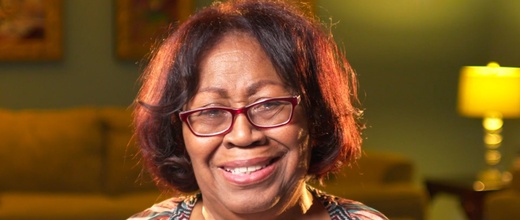Racism, a persistent blight on the human condition, can be likened to an insidious weed that infiltrates a garden of diverse flora, choking off the beauty and potential of the myriad species within. The Bahá’í teachings offer profound insights and a holistic framework for understanding and addressing this societal malaise. Healing racism, according to Bahá’í principles, is not merely an act of correction; it is an intricate tapestry that weaves together spirituality, education, and community engagement. This article delineates the myriad facets of what it means to try to heal racism, drawing from Bahá’í concepts that illuminate a path forward.
At its core, the Bahá’í Faith articulates the oneness of humanity. This tenet is the cornerstone of any discourse around healing racism. Recognizing that all individuals, irrespective of race or ethnicity, are part of a singular human family compels one to reassess their preconceived notions and foster an environment where diversity is celebrated rather than merely tolerated. This profound understanding serves as a foundation for overcoming the barriers erected by prejudice and ignorance.
The transformative power of education is paramount in the struggle against racism. The Bahá’í teachings emphasize the necessity of cultivating an enlightened mind. Education, in this context, transcends formal schooling; it embodies the acquisition of knowledge that fosters empathy and a deeper understanding of others. When individuals engage in educational pursuits that expose them to different cultures and perspectives, they are effectively dismantling the walls of ignorance that often perpetuate racist ideologies. Just as a seed requires nourishing soil to grow, the human spirit thrives in an environment where the values of justice and equity are nurtured.
Furthermore, the Bahá’í principle of consultation offers a unique method for addressing the complexities of racism. Consultation is characterized by the absence of dogmatism and the presence of a shared commitment to truth-seeking. In communities grappling with issues of race, engaging in heartfelt, honest dialogue allows for the emergence of collective understanding and healing. It is through this process that individuals can articulate their experiences, confront their biases, and ultimately arrive at collaborative solutions that emphasize unity and solidarity.
Yet, it is not enough to merely engage in conversations. Actions must stem from dialogue, manifesting in tangible efforts to eradicate racism. The Bahá’í teachings advocate for active participation in the community to promote social justice. This takes form in various initiatives—be it through organizing interfaith dialogues, participating in community service projects that benefit marginalized groups, or advocating for policies that promote inclusivity. Each act, no matter how small, becomes a ripple in the larger ocean of societal change, underscoring the Bahá’í belief in the power of collective action.
In this endeavor, the notion of “unity in diversity” emerges as a resonant metaphor. The Bahá’í teachings posit that diversity is akin to a rich tapestry, where each thread contributes to the overall beauty and strength of the fabric. Embracing this diversity means recognizing the intrinsic worth of every individual, and the unique contributions they make to the collective whole. Healing racism, therefore, entails celebrating differences while simultaneously advocating for justice and equality. It is about weaving together the distinct narratives of various communities into a cohesive story that honors each voice.
The concept of justice is not merely abstract in Bahá’í thought; it is a dynamic force that drives action. True justice involves looking beyond oneself and addressing the systemic inequities that perpetuate racial discrimination. This includes confronting institutional racism, which is often deeply entrenched in societal structures. The Bahá’í perspective encourages individuals to not only reflect on their own biases but to take a stand against injustices that affect their neighbors and fellow community members. This embodiment of justice requires courage and resilience, as confronting systemic issues often entails challenging long-established norms.
Moreover, spiritual development plays a pivotal role in healing racism. The Bahá’í teachings emphasize the importance of cultivating virtues such as compassion, humility, and love. These qualities act as antidotes to the venomous effects of hatred and prejudice. When individuals strive to enrich their spiritual lives, they are less likely to engage in divisive behaviors. Compassion fosters an innate understanding of the struggles faced by others, leading to a profound sense of responsibility to address these challenges.
As one delves deeper into the Bahá’í approach to healing racism, it becomes evident that the path forward demands a multifaceted strategy. It calls for a harmonious interplay of education, dialogue, action, and spiritual growth. Envisioning societal healing as an orchestra, each individual plays a vital instrument. When harmonized, they create a symphony that transcends discord and celebrates the unity of diversity.
Ultimately, the quest to heal racism is not a destination but a continuous journey. It is an evolving process that necessitates self-reflection and commitment. The Bahá’í teachings provide a beacon of hope, illuminating a pathway built on the principles of love, justice, and unity. Only through the concerted efforts of individuals and communities, grounded in these values, can meaningful change be realized. As we endeavor to cultivate a world free of the shackles of racism, let us remember that every step taken towards healing contributes to the grand narrative of human progress.
